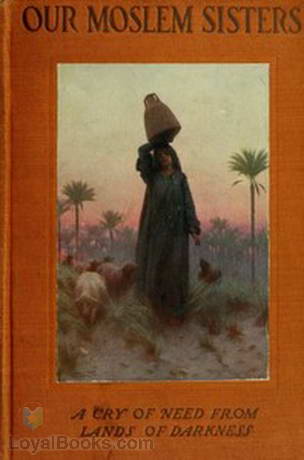Our Moslem Sisters A Cry of Need from Lands of Darkness Interpreted by Those Who Heard It By: Samuel Marinus Zwemer (1867-1952) |
|---|

Samuel Marinus Zwemer's book, Our Moslem Sisters: A Cry of Need from Lands of Darkness Interpreted by Those Who Heard It, is an eye-opening and enlightening exploration into the lives and struggles of Muslim women in different parts of the world. In this compelling narrative, Zwemer brings forth the voices and experiences of these women, highlighting their immense strength, resilience, and desire for change.
The book delves deep into the various challenges faced by Muslim women, providing readers with a comprehensive understanding of the cultural, social, and religious factors that contribute to their oppression. Through personal anecdotes, interviews, and historical research, Zwemer effectively portrays the multifaceted issues that these women encounter on a daily basis.
One of the book's greatest strengths lies in its ability to capture the complexity of Islamic feminism and women's rights within Muslim-majority societies. It challenges misconceptions and stereotypes by showcasing stories of courageous women who are actively advocating for change within the framework of their faith. Zwemer succeeds in dispelling the notion that Islam is inherently oppressive to women, instead shedding light on the diverse range of beliefs and practices that exist within the Muslim world.
Moreover, the author's use of personal testimonies creates a profound emotional impact. Readers are given a glimpse into the lives of these women, enabling them to connect on a deeper level and empathize with their struggles. By amplifying their voices, Zwemer humanizes the often misunderstood and marginalized experiences of Muslim women, making their stories accessible to a wider audience.
However, some readers may find the book's structure and narrative style a bit disjointed. The inclusion of multiple perspectives and interviews sometimes makes it challenging to follow a cohesive storyline. Additionally, Zwemer's writing can be quite academic and dense, potentially alienating some readers who may be seeking a more accessible and engaging read.
Despite these minor shortcomings, Our Moslem Sisters serves as an invaluable resource for anyone interested in understanding the lived experiences of Muslim women. Zwemer's work is a poignant reminder of the importance of intersectionality and religious pluralism, urging readers to challenge preconceived notions and embrace the diversity and agency of Muslim women.
Ultimately, this book empowers its readers to recognize and acknowledge the urgent need for change within Muslim societies. It calls on individuals, regardless of their religious or cultural background, to stand in solidarity with Muslim women and support their fight for gender equality and social justice. Our Moslem Sisters is a powerful testament to the strength, resilience, and unwavering spirit of these women, and it is a literary work that demands attention, reflection, and action. |